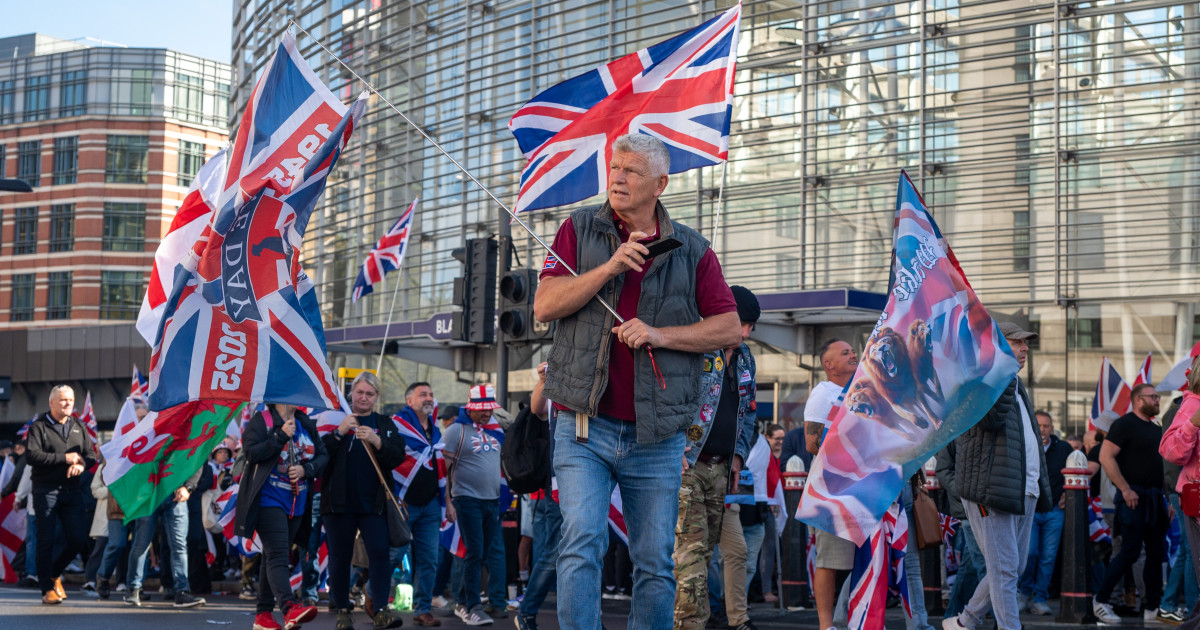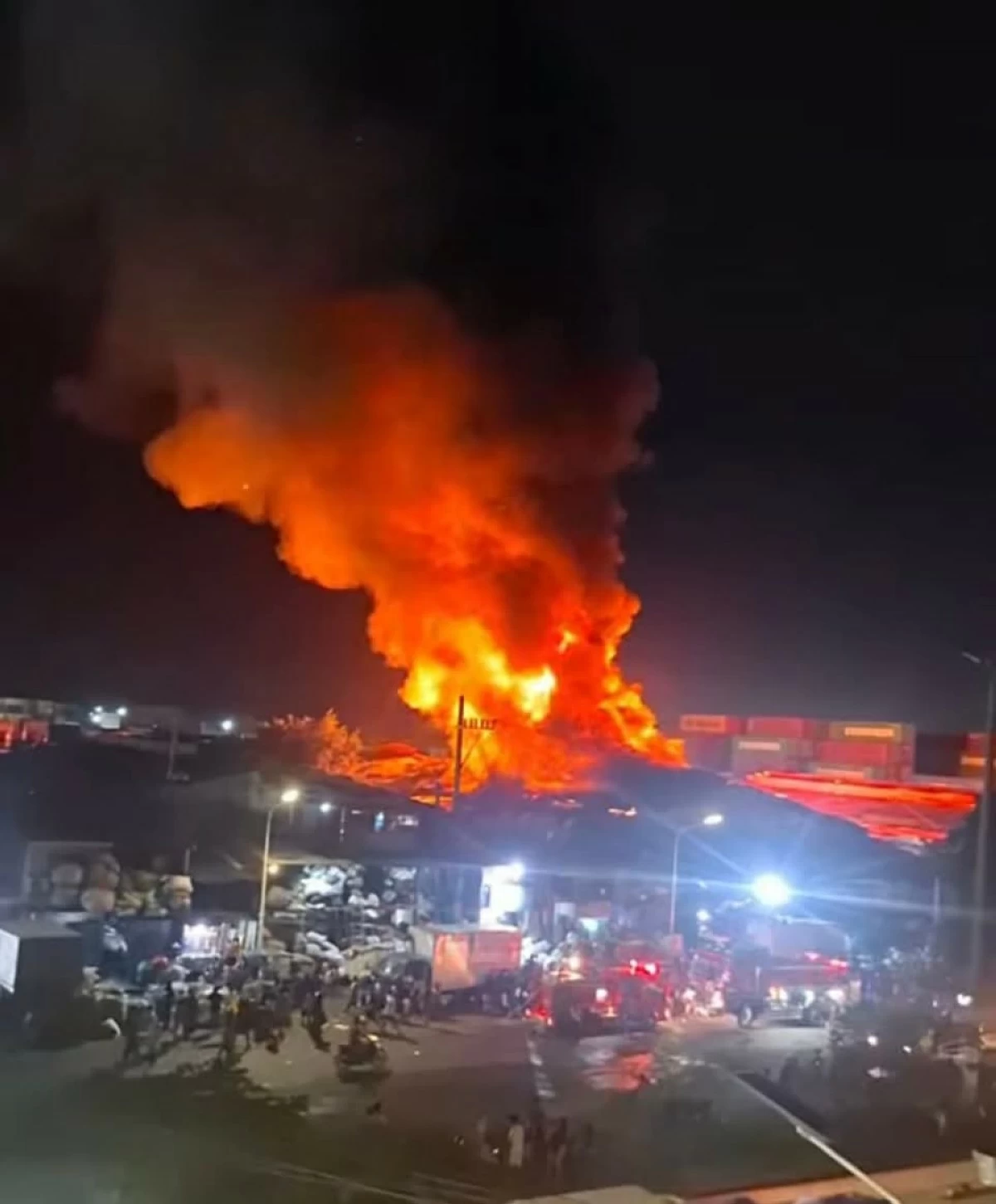Will London’s Far-Right Rally Spark Outrage Over Charlie Kirk's Legacy?

Published: 2025-09-13 11:06:23 | Category: policy GNEWS Search
On Saturday, a significant far-right rally titled "Unite the Kingdom," organised by anti-immigration activist Tommy Robinson, is set to attract tens of thousands to London. This event underscores a growing wave of nationalism in the UK, amid a backdrop of political shifts and social tensions surrounding immigration and free speech.
Last updated: 13 October 2023 (BST)
Key Takeaways
- The "Unite the Kingdom" rally is expected to draw upwards of 40,000 attendees.
- Tommy Robinson, a polarising figure, has a history of mobilising far-right supporters.
- Security measures include the deployment of over 1,600 police officers.
- A counter-protest led by anti-racism groups is also scheduled to take place.
- The political landscape is shifting, with the rise of Reform UK and increasing nationalism.
The Rise of Nationalism in the UK
In recent years, the UK has witnessed a notable increase in nationalist sentiment. This surge is characterised by the emergence of far-right political parties and movements, which have gained significant traction in public discourse. Such developments have been particularly evident in the rise of Reform UK, led by Nigel Farage, which is currently topping opinion polls.
Nationalism can be defined as a political ideology that prioritises the interests and culture of one nation, often at the expense of others. In the context of the UK, this has translated into a strong anti-immigration stance, with calls for stricter border controls and the deportation of undocumented migrants.
Tommy Robinson: A Controversial Figure
Tommy Robinson, whose real name is Stephen Yaxley-Lennon, has been a central figure in the far-right movement in the UK. Known for his provocative speeches and rallies, Robinson has attracted a predominantly male following who resonate with his calls against immigration and Islam.
His recent rally is framed as Britain's "largest free speech festival," a narrative he has actively promoted through social media. Robinson's approach often involves leveraging current events, such as the assassination of American conservative activist Charlie Kirk, to galvanise support and mobilise large crowds.
Security Measures for the Rally
The Metropolitan Police have outlined extensive security arrangements for the rally, anticipating a significant turnout. With over 1,600 officers deployed across London, the police aim to ensure public safety, particularly given the historical context of previous far-right events, which have seen incidents of violence and hate speech.
Commander Clair Haynes has urged the Muslim community in London to maintain their normal routines, stressing that the police do not endorse any advice suggesting they should alter their behaviour due to the rally. This is a notable stance, considering the anti-Muslim rhetoric often associated with far-right gatherings.
Potential Impact on Local Communities
The implications of such rallies extend beyond mere public gatherings; they can foster an atmosphere of tension and division within communities. The visible presence of English flags and far-right symbols in public spaces has sparked debates about nationalism versus hooliganism, with many residents feeling uncomfortable or threatened by the rhetoric surrounding these events.
Moreover, the rally coincides with several Premier League football matches in the capital, which may lead to additional complexities regarding crowd control and public safety. The intersection of sports culture and political activism is a phenomenon that can amplify tensions, as seen in previous events.
The Counter-Protest: Stand Up to Racism
In response to the "Unite the Kingdom" rally, a counter-protest has been organised by the group Stand Up to Racism. This counter-demonstration aims to challenge the far-right narrative and promote inclusivity and diversity within British society. Prominent figures, including leftist lawmakers Zarah Sultana and Diane Abbott, are expected to lead the counter-protest, signalling a clear opposition to the ideologies espoused by Robinson and his followers.
Counter-protests highlight the ongoing struggles against racism and discrimination, showcasing a broader resistance to the far-right movements gaining ground in the UK. These events not only serve as a platform for dissent but also play a crucial role in raising awareness about the implications of far-right ideologies on society.
Political Context and Future Implications
The political landscape in the UK is rapidly evolving, with the rise of parties like Reform UK indicating a shift towards more extreme right-wing policies. Nigel Farage's advocacy for the deportation of 600,000 individuals if he secures electoral victory illustrates the potential for harsher immigration policies and increased societal divisions.
As the political climate grows more contentious, the upcoming elections will be pivotal in shaping the future of the UK's approach to immigration, nationalism, and identity. Voter sentiment regarding these issues will likely influence party strategies and campaign messages in the run-up to the elections.
Public Sentiment and Community Reactions
Public opinion on nationalism and immigration is deeply divided in the UK. While some view the rise of far-right rhetoric as a necessary response to concerns about cultural identity and national sovereignty, others see it as a dangerous trend that threatens social cohesion and undermines the values of tolerance and diversity.
Community responses to these events are varied, with many advocating for unity and mutual respect across different cultural backgrounds. The challenges posed by far-right movements necessitate a collective effort from all segments of society to promote inclusivity and understanding.
Conclusion: What Lies Ahead for the UK?
The "Unite the Kingdom" rally is emblematic of a larger battle within British society regarding identity, immigration, and nationalism. As the UK navigates this complex landscape, the outcomes of such events will significantly influence public sentiment and policy decisions.
In light of the evolving political climate, it remains crucial for communities to engage in constructive dialogue and foster environments that celebrate diversity rather than division. The future of the UK hinges on its ability to balance national pride with a commitment to inclusiveness and respect for all its citizens.
What steps can be taken to ensure that the UK remains a place where diverse voices are heard and respected? #FarRightRally #NationalismUK #StandUpToRacism
FAQs
What is the "Unite the Kingdom" rally?
The "Unite the Kingdom" rally is a far-right event organised by Tommy Robinson, expected to draw large crowds advocating for anti-immigration sentiments and free speech.
Who is Tommy Robinson?
Tommy Robinson, born Stephen Yaxley-Lennon, is a prominent figure in the UK far-right movement, known for his controversial views on Islam and immigration.
What security measures are in place for the rally?
Over 1,600 police officers will be deployed in London to ensure public safety during the rally, particularly given the history of incidents at similar events.
What is the purpose of the counter-protest?
The counter-protest, organised by Stand Up to Racism, aims to oppose the far-right narratives and promote inclusivity, diversity, and social justice within the UK.
How is nationalism viewed in the UK?
Nationalism in the UK is viewed variably; some see it as a vital expression of identity, while others associate it with racism and social division.
What are the implications of rising far-right movements?
The rise of far-right movements can lead to increased societal tensions, discrimination, and policy shifts that may undermine social cohesion and inclusivity.



